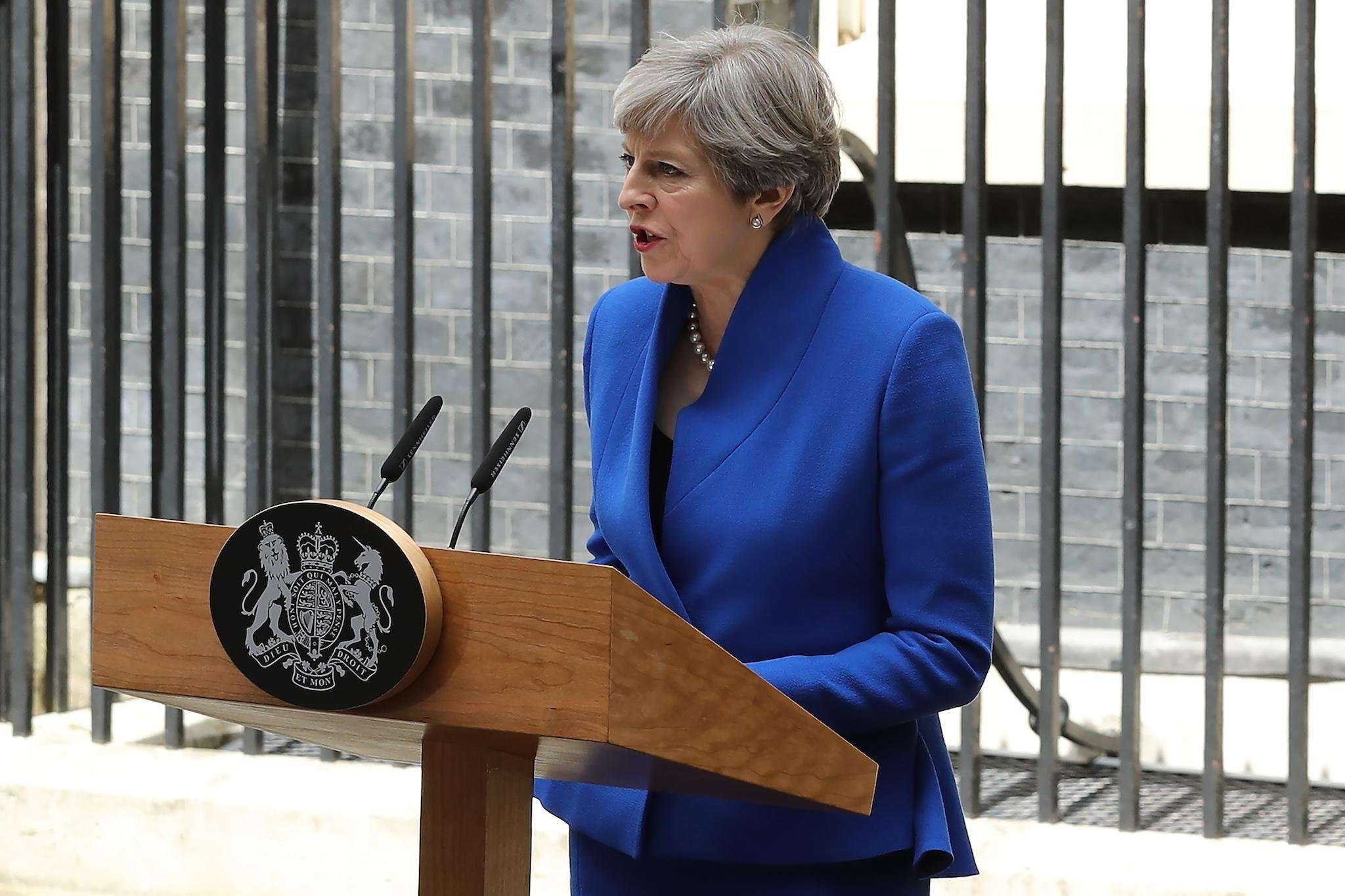Theresa May looks set to launch wide-ranging internet regulation and plans to fundamentally change how technology works despite not having won a majority.
In the speech in which she committed to keep governing despite calls to stand down, the prime minister made reference to extending powers for the security services. Those powers – which include regulation of the internet and forcing internet companies to let spies read everyone's private communications – were a key part of the Conservative campaign, which failed to score a majority in the House of Commons.
In the speech, given in Downing Street after losing her majority but still looking to form a government, she laid out a series of plans that she hopes to carry out at what she called a "critical time for our country".
General Election 2017: Big beasts who lost their seats
+ show all General Election 2017: Big beasts who lost their seats
1/7 Nick Clegg Nick Clegg delivers a speech despite losing the Sheffield Hallam Seat Darren O'Brien
4/7 Nicola Blackwood Nicola Blackwood said the UK spent much less than competitors such as Germany and the US PA
5/7 Alex Salmond Former First Minister Alex Salmond is standing for reelection in the constituency of Gordon, Scotland PA
One of those will be "cracking down on the ideology of Islamist extremism and all those who support it," she said in the short speech. And she will also "give the police and the authorities the powers they need to keep our country safe".
That statement – one of few policy proposals in the speech – seems to be a reference to new powers to regulate what is said and read on the internet, as set out in the Conservative manifesto.
Theresa May had already promised in the final days of the campaign to launch a worldwide plan to get "international agreements" to "regulate cyberspace". Her manifesto had laid out wide-ranging plans to regulate the internet, which included a commitment to become the "global leader in the regulation of the use of personal data and the internet".
During the election campaign, the prime minister refused to rule out Chinese-style internet censorship as part of that regulation plan, suggesting that she might look to shut down or ban companies that didn't comply with her controversial proposals.
Almost all of Ms May's plans for stopping terror have focused on internet communications, despite there being no proof that they are responsible for recent attacks. She said after the London Bridge attack that she planned four ways to stop terror, which included internet regulation alongside countering propaganda and segregation.
Experts have warned that those plans for internet regulation could in fact make life easier for terrorists.

ReasonablyBadass on June 10th, 2017 at 11:14 UTC »
It's so blatant how this has nothing to do with stopping terrorists. It's astounding in it's audacity.
Howlingprophet on June 10th, 2017 at 10:56 UTC »
She's interested in banning sites like GitHub and Sourceforge that make it easier for people to use encryption tools in their code and wants no new or existing tech companies to have their data not accessible by the government.
I really hope someone explains to her that ending crypto would literally kill the tech and financial industries in this country before she does more harm.
Cameron reversed his position - probably after someone with technical know-how sat him down and told him what would happen if he attempted it.
Source. (Now fixed).
Edit: holy fuck guys. Top of all (mine at least). Posted this a second before I went into see Wonder Woman. Which is great by the way thanks for asking.
sovietskaya on June 10th, 2017 at 10:33 UTC »
Lol. It's time to double-down on pressure to make her step down then.